Be a bit bolder, let’s talk about Coach Guo Shiqiang! What are his biggest strengths and weaknesses?
Chinese fans are no strangers to the phenomenon of hyping up a coach.
After winning the Changsha Asian Championship in 2015, Gong Luming was highly praised.
After the 2018 Olympic gold, Li Nan received a lot of acclaim.
In 2021, Du Feng was also praised for leading the team to two World Cup qualifying wins.
But ultimately, all three couldn’t avoid a quiet exit...
Looking at public opinion over the past two days in 2025, the recognition for Coach Guo Shiqiang has reached a peak, as if he’s the savior of Chinese basketball.
Yesterday, I had this thought:What if China loses at the 2027 World Cup? How will public opinion judge Coach Guo then?
Brothers, I don’t know basketball, but I do know this:“Building up a hero, tearing him down”—this is a cyclical phenomenon in Chinese basketball.
We may not be able to break this cycle ourselves, but I hope those reading this message won’t become slaves to information, but rather masters of their own thoughts.
So let’s talk about Coach Guo Shiqiang, not just his coaching style.
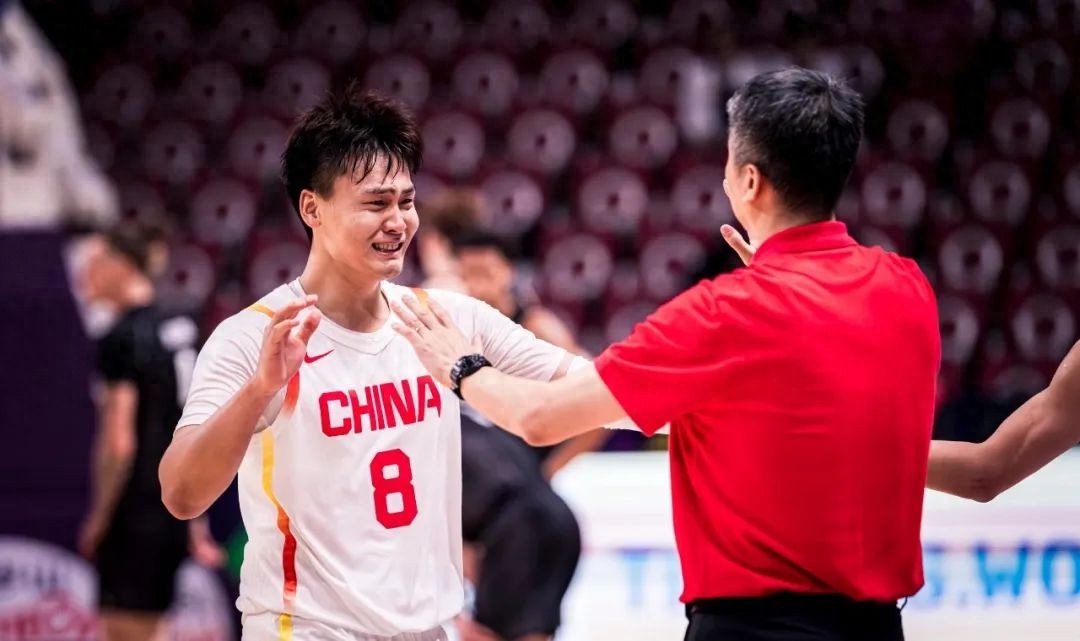
First, why Guo Shiqiang?
Foreign coach or domestic coach?
Whether it’s basketball or football in China, this topic has always been debated—from when I was in third grade to now...
But after seeing Guo’s coaching this time, I think the debate can end.
At this stage, let’s not hire foreign coaches anymore.
Bringing in Djordjevic was a misstep in the history of Chinese basketball.
The greatest value of famous foreign coaches is their understanding of advanced global basketball concepts and tactics. But for the current Chinese men’s team, this value can’t be realized—it’s like playing music to a cow.
Our players don’t have the physical capabilities or the understanding to support that.
Do our players have the physical attributes of Serbians? Do they have the same sense of teamwork?
If you ask a graduate advisor to teach kindergarten kids, it may not work out well.
A foreign coach—regardless of whether he’s here for the money—if he always acts superior, sees himself as “bringing technology to China,” and keeps trying to showcase the latest ideas and rules, he definitely won’t lead the team well.
Take football for example—why did Milu succeed back then? (Though he was later criticized as a “fraud”)
A major reason was that he understood and embraced Chinese culture.
Back to basketball: why choose Guo Shiqiang now?
It’s not just because he knows the technical traits of Chinese basketball players—his key advantage over foreign coaches isthat he understands Chinese society better.
Does Djordjevic know that one big reason Chinese players are afraid to take responsibility is the risk of online abuse?
Does he know that many Chinese players grew up in relatively closed sports schools?
Is he aware of the physical characteristics of Chinese players? Does he know that different Chinese players have vastly different personalities?
Does he understand the leadership of the Chinese Basketball Association? More directly, does he know that Chinese players generally lack self-discipline and like to drink?
Guo Shiqiang knows all these things far better...
If a coach doesn’t understand the traits and personalities of his own players, can you really expect him to lead the team well?
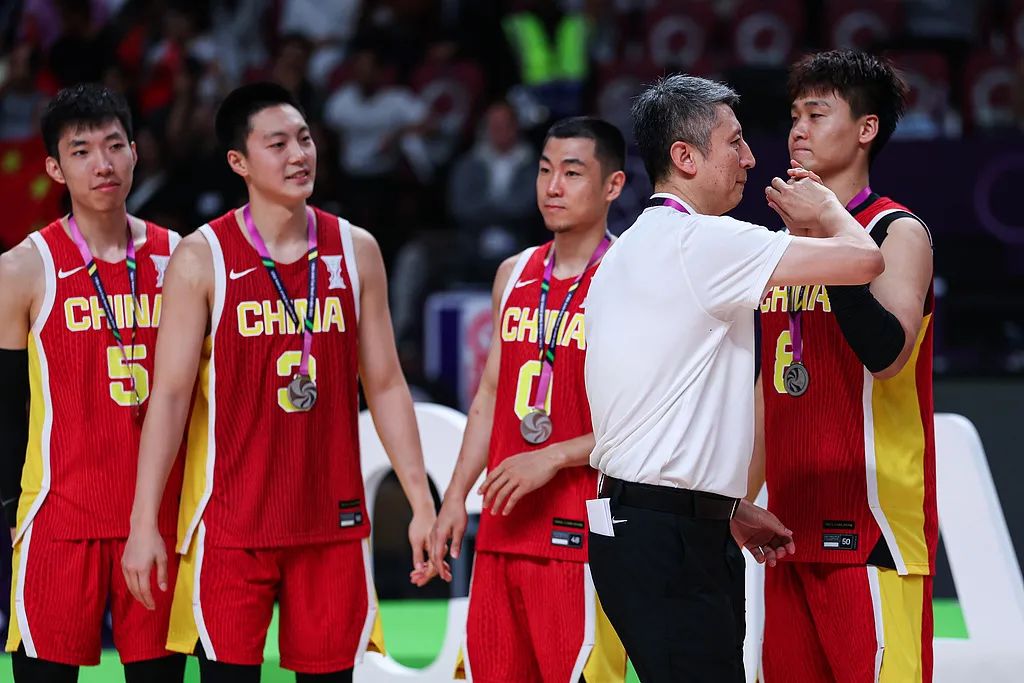
Second, what is Coach Guo Shiqiang’s greatest strength?
Undoubtedly, he has a deeper understanding of Chinese basketball.
How do you help an average class of students improve? Anyone who’s been to school knows the most effective method is enforcing discipline.
Guo Shiqiang has repeatedly stressed that the national team needs players with a strong desire to represent the country, outstanding ability, fit for the system, in good physical condition, and most importantly, willing to give their all.
He’s made it clear he can’t accept players who lack team spirit, don’t fight hard, or have no cohesion.
In tough times, unity is the foundation for a comeback.
The biggest change in this Chinese men’s team is that they’re more united, more cohesive, and more responsible.
Simply put, the players have set aside their egos.
In our society, never underestimate this point.
In the past, how many Chinese basketball players were afraid of injuries that could affect their earnings in the league? How many were unwilling to take on responsibility?
That’s why I personally dislike the “what if” arguments many people make.
“If xxx had joined, could we have beaten Australia?”
Here’s the real issue:Even if you bring in other players who seem more talented, would this Chinese team still have the same cohesion and fighting spirit? Do those absent players have the same desire and passion?
Team sports require chemistry—something many people haven’t really thought about.
After the final, Hu Jinqiu’s speech and his actions on the court moved Chinese fans to tears.
“In this peaceful era, doing something for the country is the highest honor.”
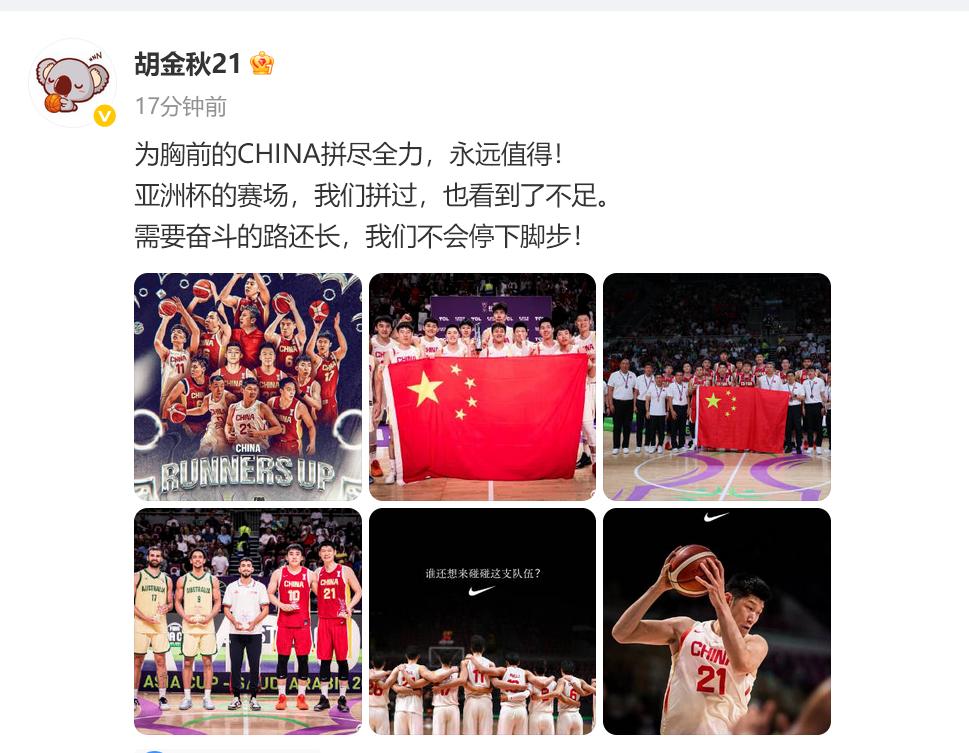
Everyone is giving everything they have for this team.
From this perspective, it’s understandable why Guo took Gao Shiyan.
It’s the same logic as leading troops in wartime.
Never forget this:When two sides are evenly matched, the fighting spirit of loyal players and hired hands is very different—loyal players will fight to the end, while hired ones will just do their best.
If the Asia Cup were a war, Gao Shiyan would be the one charging forward with the explosives.
“Using your own people” isn’t a negative term—even Coach K let Plumlee join the Dream Team.
If it were someone else, he might do his best, but wouldn’t go all out for Guo Shiqiang.
New leaders bring new followers; people give their all for those who truly appreciate them.
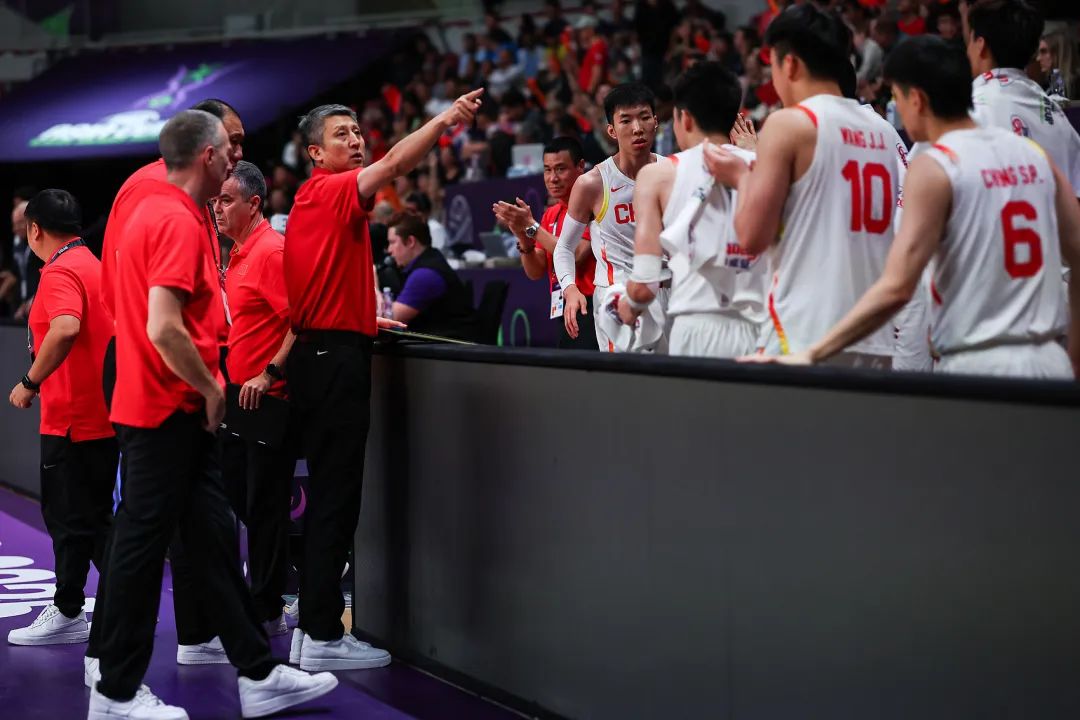
Third, does Coach Guo Shiqiang have any weaknesses?
There’s no such thing as a perfect head coach in this world.
Coach Guo is strict, pragmatic, and highly driven—he wants to do a good job, and he demands of himself what he asks of his players.
But he has his flaws too.
For example, his communication style and methods for developing young players.
For instance, the stubbornness common among Chinese coaches.
Or his flexibility in making in-game adjustments.
Once he makes up his mind about something, it’s hard for him to change.
Players he doesn’t favor may struggle to get opportunities in the future...
The painful experience of 2009—the infamous “laughing scandal”—is a dark mark in Chinese basketball history, but after more than a decade, a more mature Guo Shiqiang has surely reflected and learned from it.
Once bitten, twice shy.
He knows very well that he needs absolute control over the team.
It’s good for the head coach to have control, but if it becomes too extreme, it can go in the wrong direction...
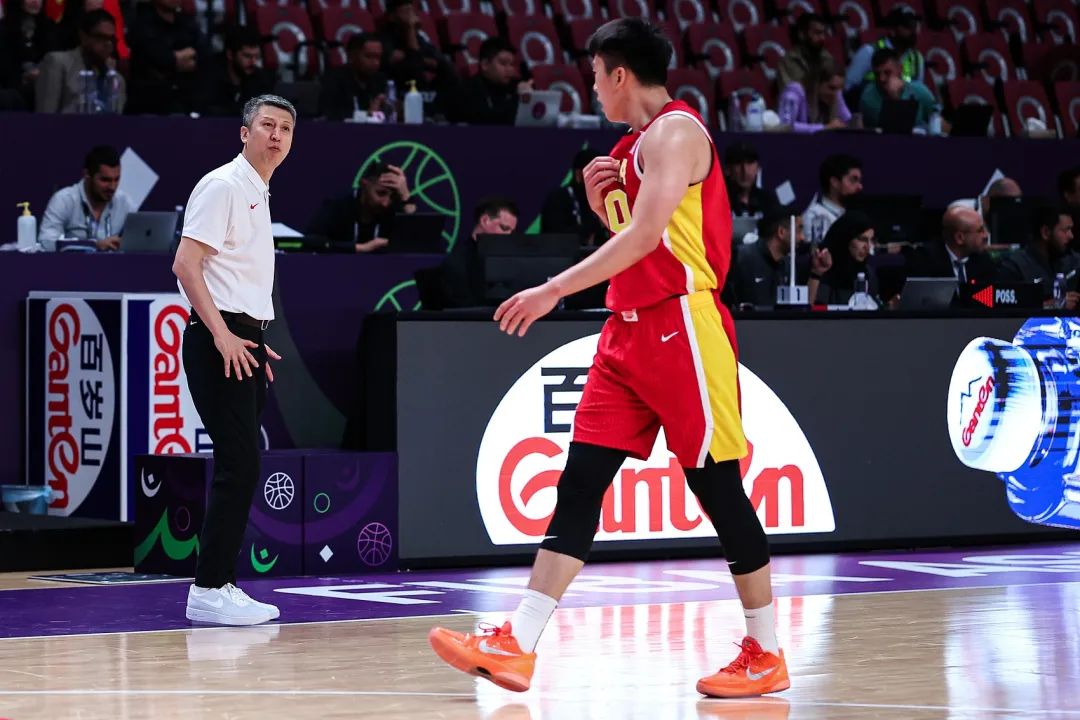
Fourth, what is the biggest test for Guo Shiqiang?
It’s undeniable that his work with the team at this Asia Cup has been impressive.
To keep it simple, let’s just talk about shooting.
49.1% field goal percentage—best among 16 teams; 39.9% three-point percentage—best among 16 teams; 80.3% free throw percentage—best among 16 teams.
This has always been our major weakness, but now there are signs of improvement, proving the coaching staff’s emphasis on training quality is paying off.
Asian teams don’t have the same physical advantages, so without superior shooting, it’s impossible to compete.
So the current question is:When it comes to the higher level of the World Cup, can the national team maintain its shooting accuracy?
If our goal is to reach the 2028 Olympics, there are many challenges ahead.
For Guo Shiqiang, the real test is the 2027 World Cup.
It’s simple: can this lineup beat Serbia, South Sudan, or Puerto Rico, our 2023 opponents? Not really—top-level games aren’t just about unity and passion.
If we can’t win a group stage game at the World Cup, aiming for the best result among Asian teams will be tough.
Asian teams in Olympic qualifiers are basically “waiting for elimination”—just cannon fodder. Japan’s men’s team made it to the Paris Olympics because they beat Finland in the World Cup group stage.
Honestly, can we do the same?
So after a brief celebration, it’s time to face reality: over the next two years, Chinese basketball still has many problems to solve.
For example, how can promising players like Wang Junjie, Yang Hansen, and Zeng Fanbo develop during their prime?
How can veterans like Zhao Rui and Hu Jinqiu maintain their form over the next two years?
How can our guards—where we have a huge gap—like Liao Sanning, improve after returning to the league?
Can we play more valuable warm-up games over the next two years?
How do we solve the naturalization issue? These days, without good naturalized players, it’s tough...
Even the best chef needs quality ingredients.
This isn’t being pessimistic or pouring cold water—the current roster simply isn’t enough for Coach Guo to take us to Los Angeles.
You’ll see in the game against Australia—at the highest level, it all comes down to individual ability and physical talent.
Were those shots made by number 10 Cooks really that spectacular? Not really.
Has Chinese basketball truly turned a corner? Not yet.
Being able to fight Australia until the last second is understandable cause for excitement and joy—after all, kids who’ve walked long nights will be happy just to see a glowing firefly.
But hopefully, this change in the Chinese men’s team isn’t just a fleeting fireworks display.
Fireworks are beautiful, but they don’t last long.


Wonderfulshortvideo
Ja tough chasedown rejection 🏃 🚫


Shai Gilgeous-Alexander joins Wilt Chamberlain (3x) as the only players in NBA history to total 40+ pts, 10+ ast, and 5+ reb in a game on at least 80% shooting from the field 📈 💪


🤩A legendary London crossover w/ @marcelotwelve 🇧🇷


Giannis jams it through traffic 🔥


SGA gets inside for 2️⃣, putting him at 40pts on the night ❗️


Great @Charlotte Hornets sequence 🏀


DUNK OF THE YEAR⁉️⁉️⁉️








 Links
Links
 Contact
Contact
 App
App


